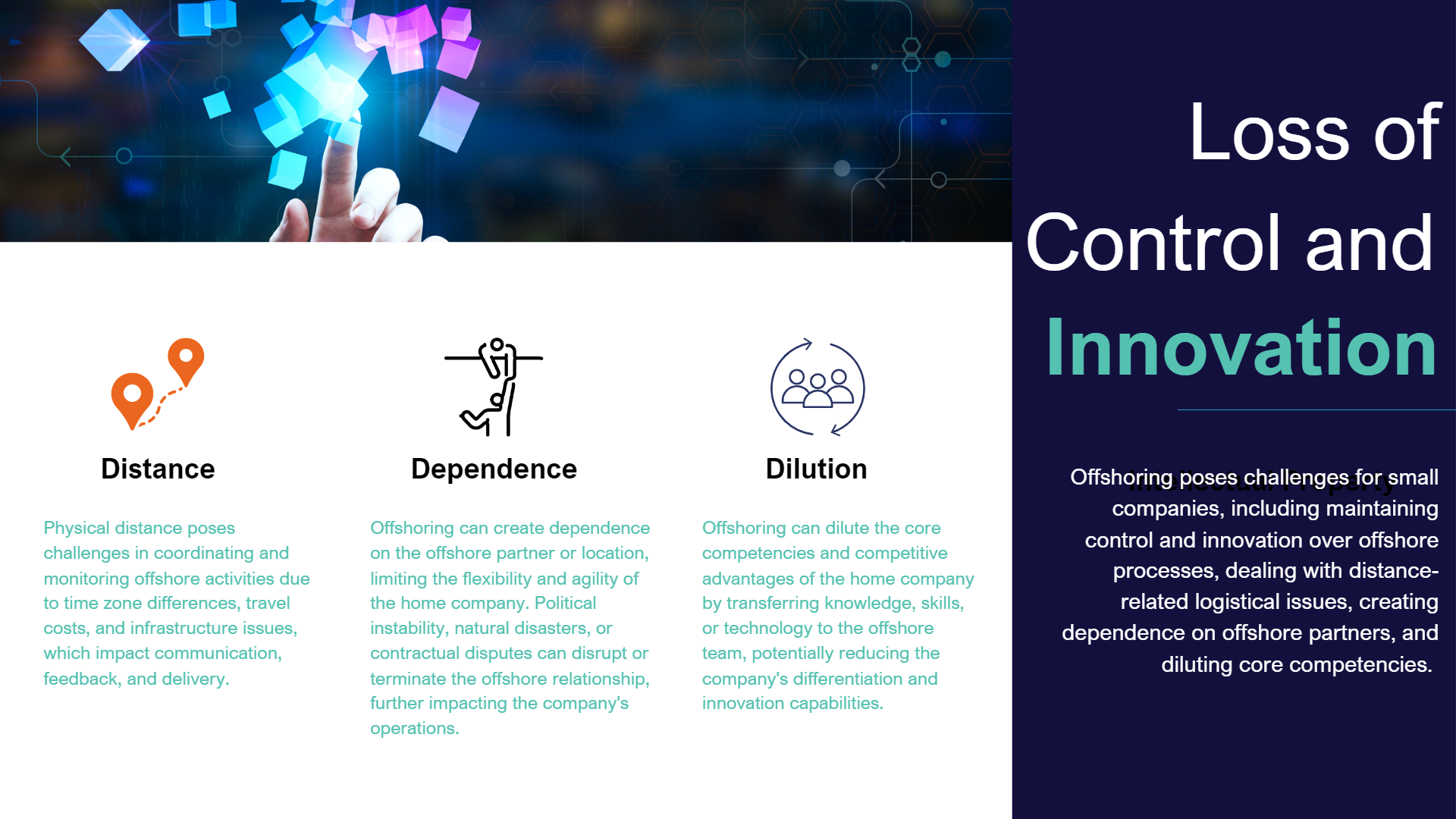Why Offshoring Fails for Small Companies: Loss of Control and Innovation

A third offshoring challenge for small companies is maintaining control and innovation over offshore processes and outcomes. Offshoring can hinder small companies' ability to adapt to changing customer needs and market conditions in various ways, such as:
Distance
Physical distance can create logistical and operational difficulties in coordinating and monitoring the offshore activities. For example, time zone differences, travel costs, and infrastructure issues can affect communication, feedback, and delivery.
Dependence
Offshoring can create a dependence on the offshore partner or location that can limit the flexibility and agility of the home company. For example, political instability, natural disasters, or contractual disputes can disrupt or terminate the offshore relationship.
Dilution
Offshoring can dilute the core competencies and competitive advantages of the home company. For example, transferring knowledge, skills, or technology to the offshore team can reduce the differentiation or innovation of the home company.

These issues can be especially detrimental for small companies that may not have the resources or capabilities to overcome these challenges and remain competitive. Moreover, small companies may have more unique or niche products or services than large companies that require more customization or innovation.
Offshoring can offer many benefits for businesses, such as cost reduction, access to talent, and market expansion. However, offshoring is not a one-size-fits-all solution, and it can pose significant challenges and risks for small companies. We discussed why offshoring fails for small companies and next week, we would be providing some recommendations for offshoring on how to overcome these challenges. Stay tuned!




